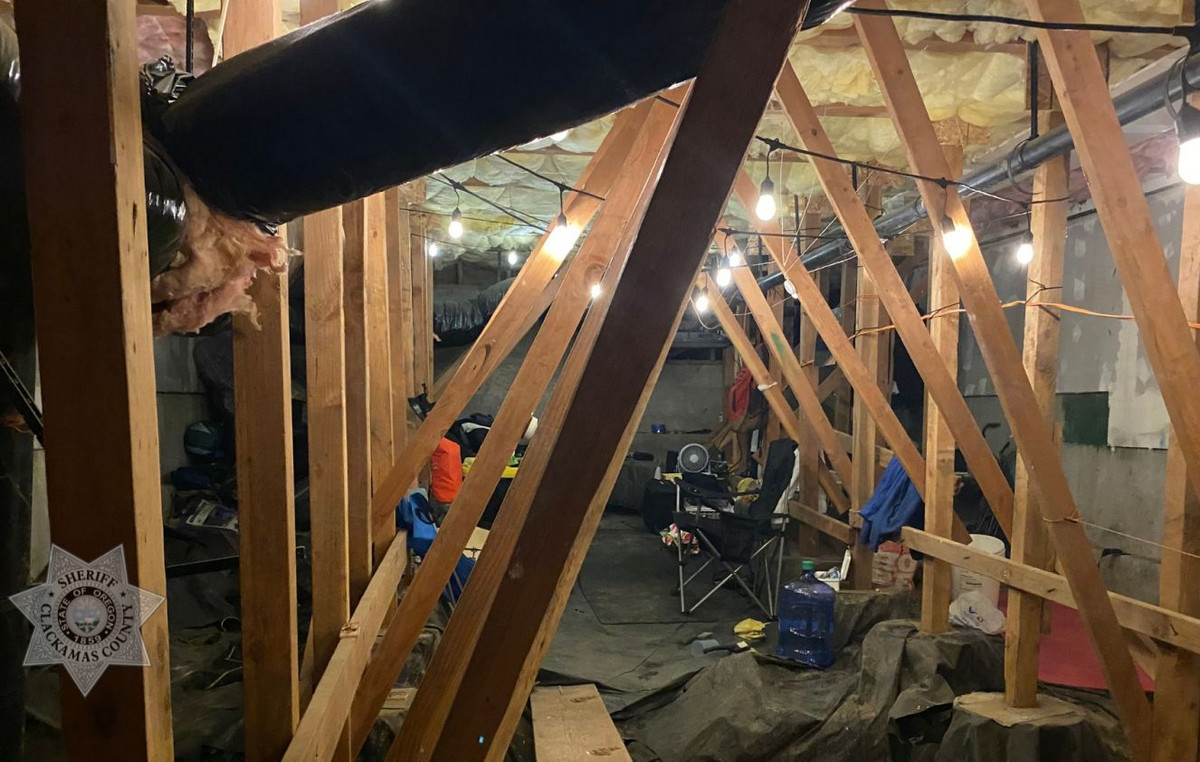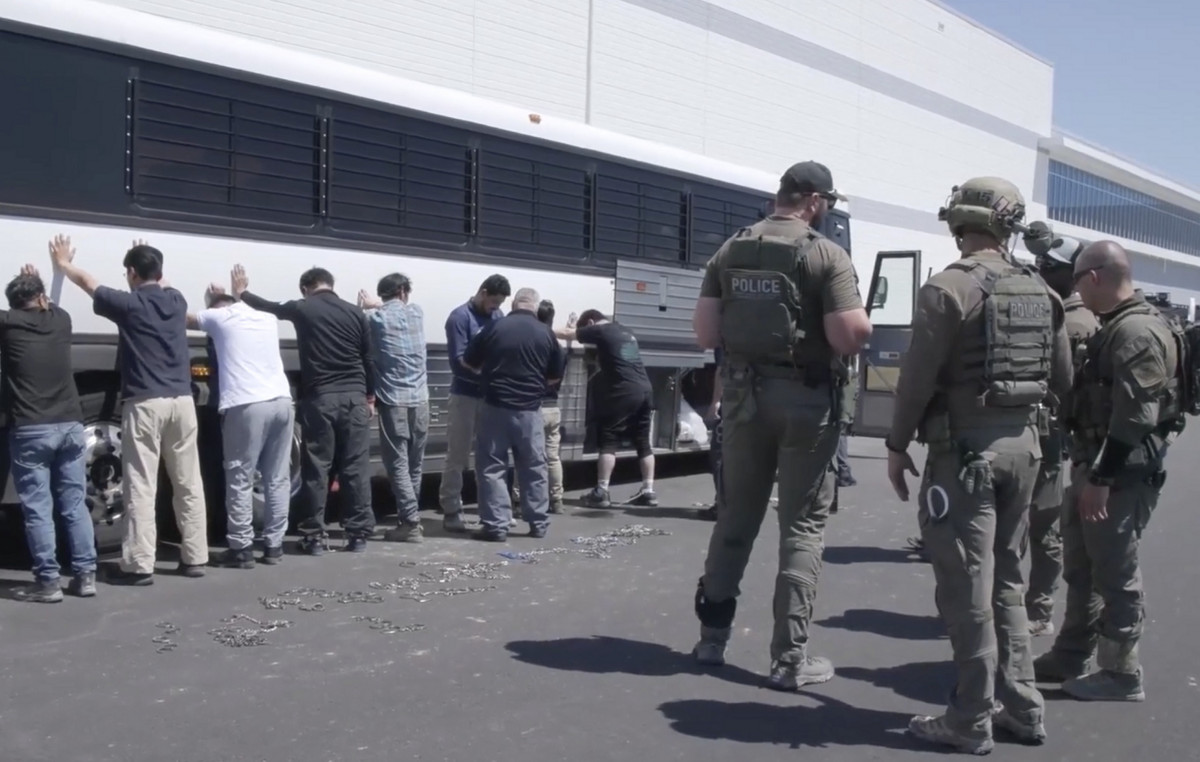Israeli Prime Minister Benjamin Netanyahu’s coalition descended into chaos on Monday after mass protests overnight over the sacking of its defense chief increased pressure on the government to halt its bitterly contested plans to reform. the judiciary.
Netanyahu was expected to make a televised statement earlier today announcing that the plans, which he says are necessary to restore balance to the system of government and which critics see as a threat to democracy, have been put on hold.
Amid reports that his nationalist-religious coalition was in danger of breaking apart, the statement was postponed while Netanyahu met with party chiefs.
Meanwhile, tens of thousands of protesters took to the streets in Tel Aviv and Jerusalem, waving the blue and white Israeli flags that have become an emblem of the protests.
Earlier, a source in his Likud party and another source closely involved in the legislation said Netanyahu would suspend the reform, which has sparked some of the biggest street demonstrations in Israel’s history and prompted an intervention by the head of state.
“For the sake of the unity of the people of Israel, for the sake of accountability, I call on you to stop the legislative process immediately,” President Isaac Herzog said on Twitter.
The warning by Herzog, who is supposedly above politics and whose role is largely ceremonial, underscored the alarm raised by the proposals, which would strengthen political control over judicial appointments and allow parliament to overrule the Supreme Court.
A dramatic night of protests followed in cities across Israel, with hundreds of thousands flooding the streets following Netanyahu’s announcement that he had sacked the defense minister, Yoav Gallant for opposing the plans.
A day earlier, Gallant had made a televised appeal for the government to suspend its major overhaul of the judicial system, warning that the deep division it had opened up in Israeli society was hurting the military and threatening national security.
With the army reinforcing units in the occupied West Bank after a year of relentless violence that killed more than 250 Palestinian and more than 40 Israeli gunmen and civilians, the ousting of the defense minister fueled accusations that the government was sacrificing the national interest for its own sake.
Opposition
During angry scenes in the Knesset on Monday morning, opposition members of parliament attacked Simcha Rothman , the chairman of the committee that steered the bill, with chants of “Shame! Shame!” and accusations likening the bill to militant Islamist groups that want Israel’s destruction.
“This is a hostile takeover by the State of Israel. No need for Hamas, no need for Hezbollah,” one lawmaker was heard telling Rothman as the constitution committee approved a key bill for ratification.
“The law is balanced and good for Israel,” Rothman said. As the drama unfolded, Finance Minister Bezalel Smotrich presented the 2023-24 budget to parliament for a preliminary vote later in the day.
An opposition no-confidence motion was defeated, but in a sign of tensions within the ruling coalition, National Security Minister Itamar Ben-Gvir, who heads one of the hardline pro-settler parties, called for the reform to go ahead.
“We must not stop judicial reform and we must not surrender to anarchy,” he wrote.
General strike
The shekel, which has seen wild swings in recent weeks as the political turmoil unfolded, fell 0.7% in early trading before regaining ground on rising expectations that the legislation would be lifted. By late morning, Tel Aviv stocks were up about 2% and the shekel was up about 0.8%.
As opposition spread, the head of the Histadrut labor union called for a general strike if the proposals were not stopped.
Takeoffs from Ben Gurion Airport were suspended, while major ports, hospitals and medical services in Israel went on strike.
McDonalds branches were also closed as protests spread across the economy. “Bring back sanity to the country. s
and you don’t announce at a press conference today that you’ve changed your mind, we’ll go on strike,” said Histadrut president Arnon Bar-David.
The judicial reform, which would give the executive branch control over the appointment of judges to the Supreme Court and allow the government to overrule court decisions based on a simple parliamentary majority, has drawn mass protests for weeks.
While the government says reform is needed to rein in activist judges and strike a proper balance between the elected government and the judiciary, opponents see it as a weakening of legal checks and balances and a threat to Israel’s democracy.
Netanyahu, on trial on corruption charges he denies, has so far vowed to go ahead with the project. In addition to attracting opposition from the business community, the project has caused alarm among Israel’s allies.
The United States said it was deeply concerned about Sunday’s events and saw an urgent need for a deal, while reiterating calls to safeguard democratic values.
Source: CNN Brasil
Bruce Belcher is a seasoned author with over 5 years of experience in world news. He writes for online news websites and provides in-depth analysis on the world stock market. Bruce is known for his insightful perspectives and commitment to keeping the public informed.







